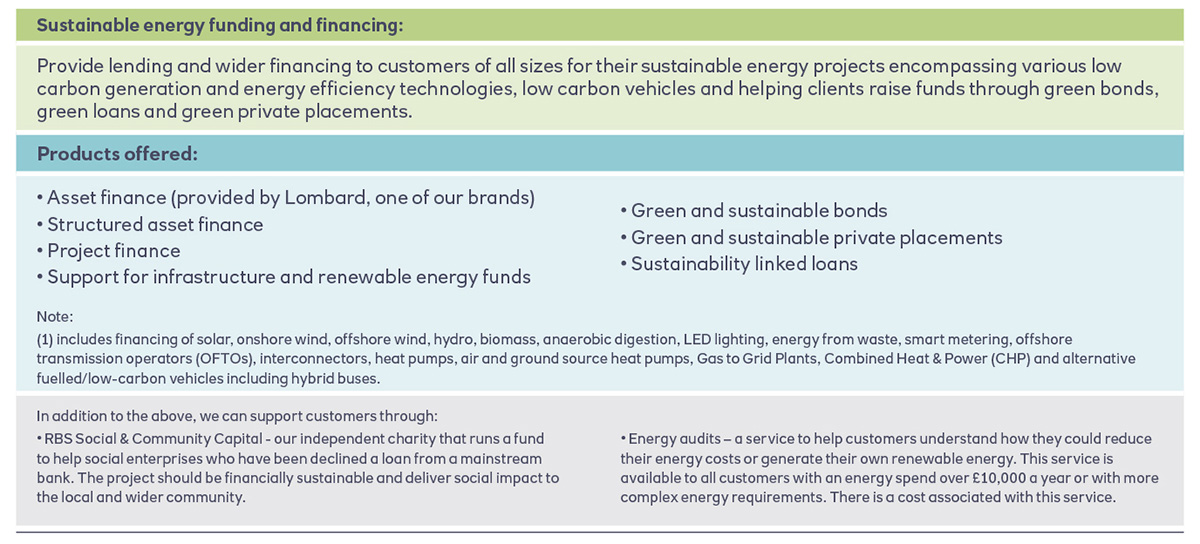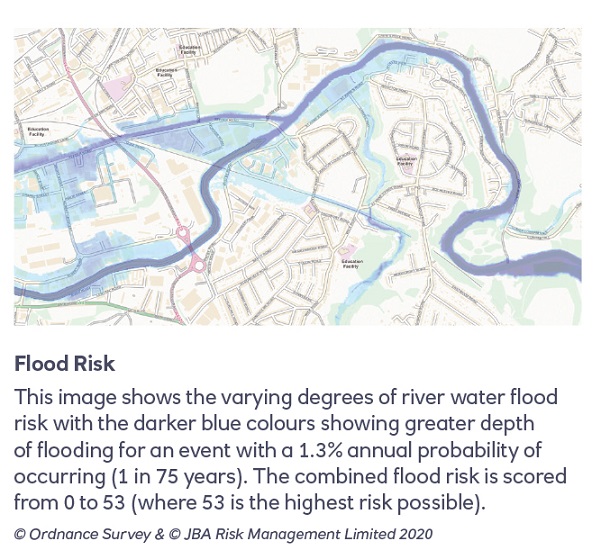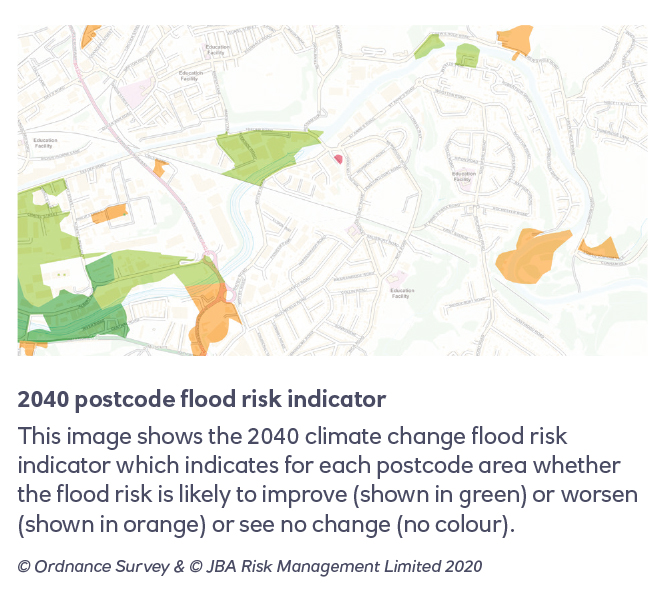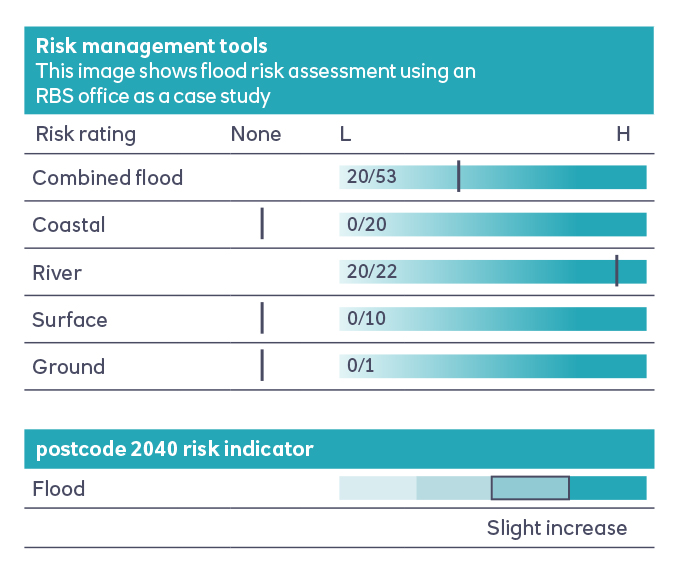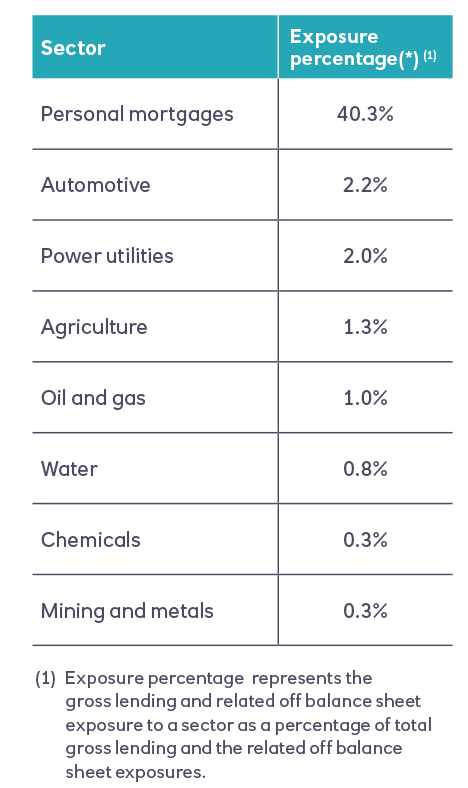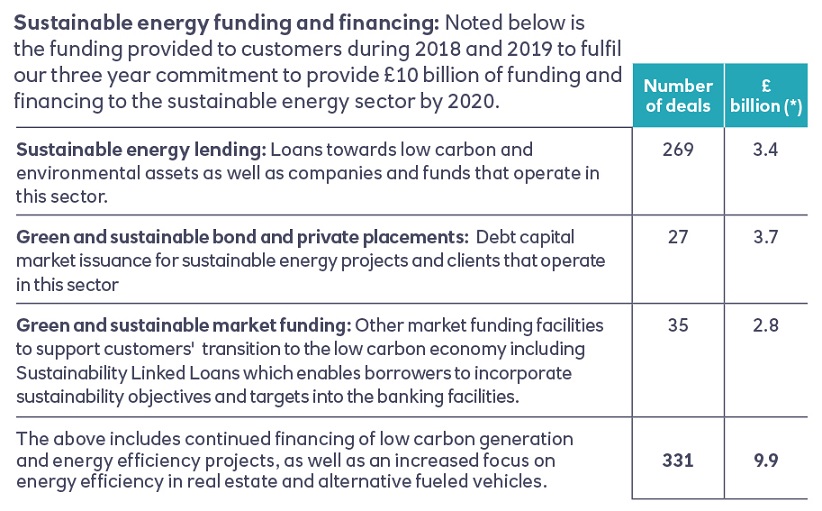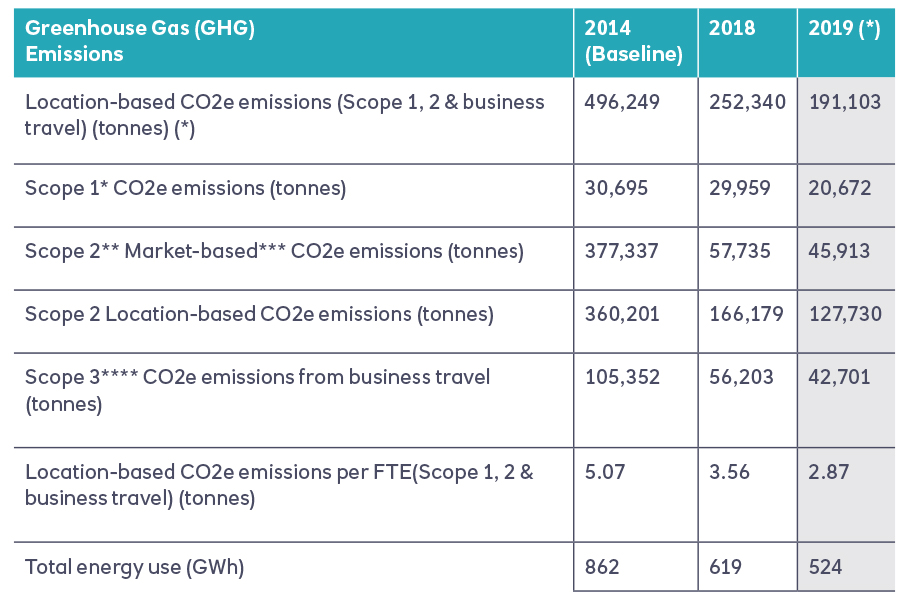It is recognised that climate change, including the associated financial risks, must have greater prominence at both senior management and Board level across RBS Group. Further details on RBS Group’s Corporate Governance structure is included on page 45 of the Strategic Report.
Board and Executive-level activity in 2019 focused on increasing the knowledge and understanding of the financial risks associated with climate change and strategic opportunities. Areas of future development include risk appetite integration, strategic delivery and embedding the agreed climate risk operating model to support Board-level reporting, including Top Risk Reporting as well as quarterly reporting to the Executive Risk Committee and Board Risk Committee.
A climate governance map detailing the relevant roles and responsibilities of RBSG plc Board, board committees, management committees and individuals, as well as operational working groups tasked with managing the Bank’s transition, has been prepared to support internal mobilisation and planning. While the Sustainable Banking Committee’s role in overseeing climate related opportunities will continue going forward, the Board and other board committees will also play a prominent role in overseeing the interaction between climate change, strategy and risk appetite.
The RBSG plc Board approved the allocation of the responsibility for identifying and managing financial risks from climate change to the Group Chief Risk Officer (CRO) who has been tasked with ensuring that the financial risks from climate change are adequately reflected in risk management frameworks, and that the Bank can identify, measure, monitor, manage, and report on its exposure to these risks.
In the second half of 2019, the existing Climate Change Working Group (CCWG) was formalised into an RBS Group wide Climate Change Programme (GCCP). Now co-chaired by the Group CRO and Head of Large Corporates and Institutions, the GCCP Executive Steering Group (ESG) is responsible for coordinating the RBS Group response across climate related regulations, risks and opportunities.
The ESG includes cross-franchise and functional representatives from across NatWest Holdings Limited, NatWest Markets Plc and RBS International; and ensures alignment of underlying franchise initiatives and working groups. This includes the efforts of the existing Sustainable Energy Forum (an internal forum with a focus on helping our customers transition towards a low carbon economy) and existing or proposed working groups at franchise and functional level. It also oversees activities around communication and education as RBS Group builds further awareness of Climate Change considerations in support of our ambitions.
In October, following approval through the GCCP ESG and the Board, RBS Group provided a response to PRA Supervisory Statement 3/19 ‘Enhancing banks’ and insurers’ approaches to managing the financial risks from climate change’ (SS 3/19). SS 3/19 required RBS Group to provide an RBSG plc Board approved plan outlining how the financial risks of Climate Change will be managed. Our response outlined a multi-phase, multi-year plan to build out capabilities across governance, scenario analysis and stress testing, risk management and disclosures (including TCFD). It recognises that the GCCP plan will be subject to continual monitoring and refinement to ensure it remains responsive to both internal and external stimuli, including market expectations, UK Government policy and other regulatory or international drivers.
To inform the continued development of our plan, RBS Group continues to enhance its participation in several climate related initiatives, including the UNEP FI Responsible Banking Principles, UNEP FI TCFD scenario analysis pilot and other TCFD working groups and the PRA and FCA’s Climate Financial Risk Forum.
